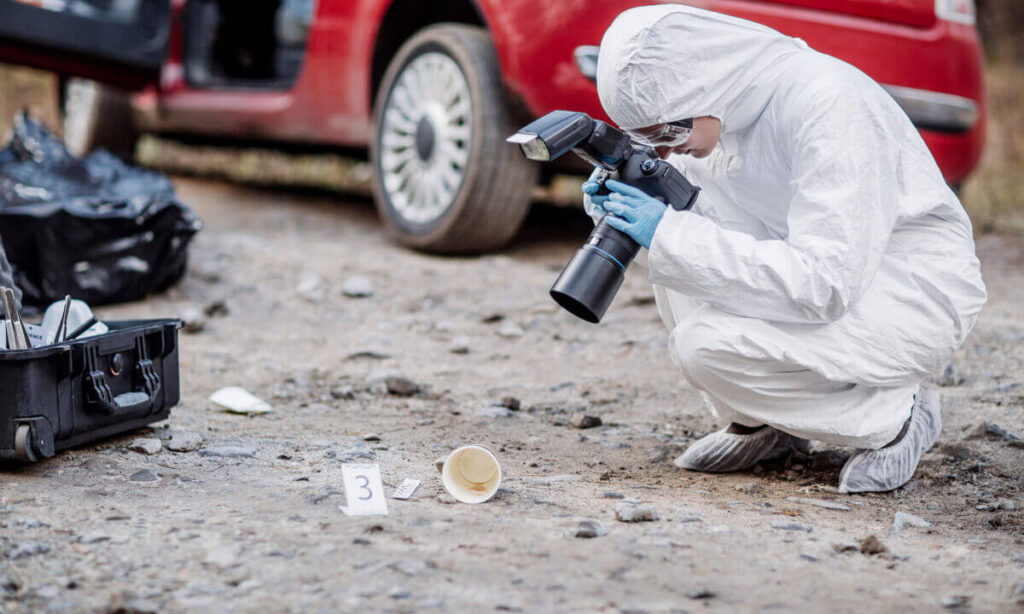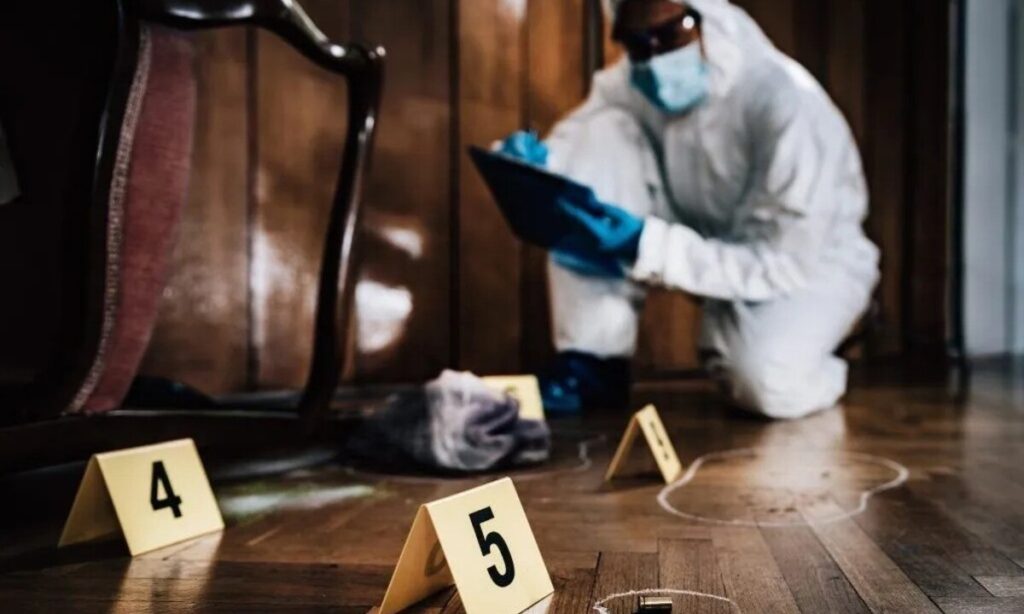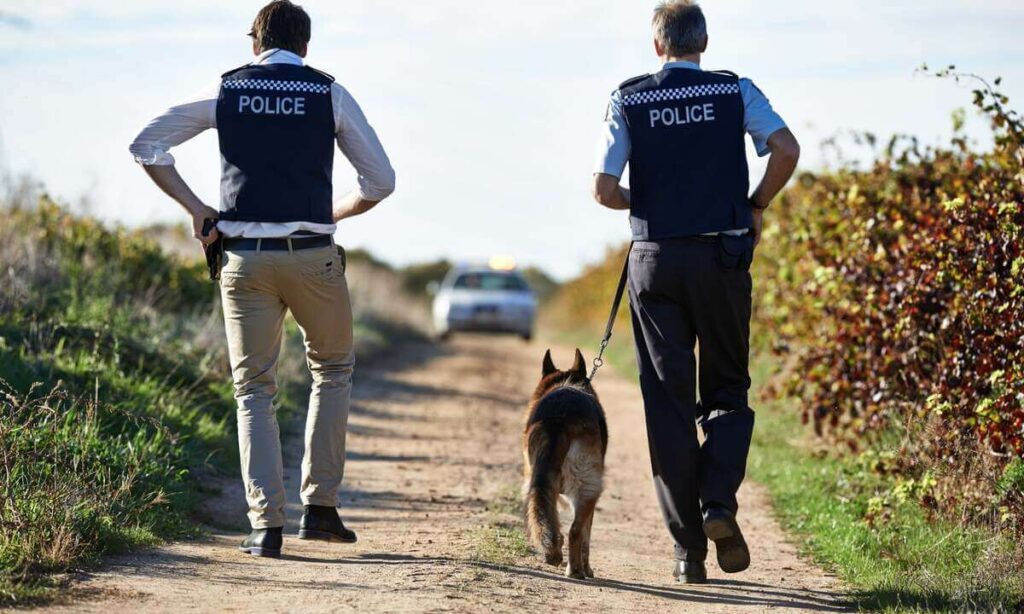Crime scene investigation, or CSI, is a critical component of the criminal justice system. It entails the scientific examination and analysis of physical evidence found at a crime scene in order to uncover valuable information that can aid in the resolution of crimes. CSI plays an important role in the criminal justice process by assisting in the identification of suspects, the establishment of motives, and the support of legal proceedings. This article discusses the significance of crime scene investigation and delves into the twelve most popular careers in this field.
Importance of Crime Scene Investigation
Crime scene investigation is critical to ensuring that justice is served and that innocent lives are not lost. It helps law enforcement authorities establish a strong case against perpetrators by providing crucial insights into the nature of a crime. Crime scene investigators aid in the settlement of criminal cases by meticulously gathering, documenting, and evaluating evidence. CSI discoveries can be presented as incontrovertible evidence in court, resulting to the conviction of the guilty and the exoneration of the innocent.
Furthermore, crime scene investigation aids in the discovery of the truth behind complicated and perplexing crimes. CSI professionals can reconstruct the chain of events leading up to a crime and provide a coherent narrative for investigators and legal experts by piecing together evidence. This in-depth knowledge of the crime scene aids in the identification of suspects, their reasons, and the building of a firm foundation for further inquiry.
Skills Required to Work in Crime Scene Investigation (CSI)
Working in crime scene investigation necessitates a distinct set of abilities. As CSI personnel must extensively analyze crime scenes, documenting every significant piece of evidence, attention to detail is essential. They must have exceptional observation abilities, able to identify even the smallest details that may aid in the resolution of a case.
Furthermore, excellent analytical abilities are required in crime scene investigation. CSI experts must be able to piece together the facts and reconstruct the events that occurred. Critical thinking and the capacity to link seemingly unrelated pieces of knowledge are required.
Crime Scene Investigator Job Opportunities
There are numerous job options available in crime scene investigation. A Crime Scene Investigator (CSI) is one of the most common jobs. CSIs are in charge of acquiring evidence, photographing crime scenes, and writing up their findings. They collaborate closely with law enforcement agencies, assisting with investigations.
A Forensic Science Technician is another professional possibility. These experts specialize in assessing evidence gathered at crime scenes. They may work in laboratories, examining DNA, fingerprints, and other sorts of evidence with various techniques and technology.
12 Most Popular Careers in Crime Scene Investigation (CSI)
Now, let’s get into the 12 crime scene investigation careers. These 12 jobs in crime scene investigation are among the most popular and well-recognized in the world of CSI. Without further ado, here are the 12 Careers in CSI:
1. Forensic Science Technician
Forensic science technicians are essential in crime scene investigation. To aid in criminal investigations, they gather and analyze physical evidence such as fingerprints, DNA samples, and ballistic materials. These specialists collaborate closely with law enforcement agencies and forensic laboratories to ensure proper evidence analysis and interpretation. A strong scientific background, attention to detail, and outstanding analytical abilities are required for success in this vocation.
2. Crime Scene Investigator
Crime scene investigators are the professionals on the front lines who secure and evaluate crime sites. They methodically document and gather physical evidence such as fingerprints, footprints, and trace elements. Becoming a crime scene investigator requires one to comprehend forensic techniques and employ specialized technologies to preserve and evaluate evidence. Crime scene investigators frequently work long hours and are called to testify in court. This position requires strong organizational abilities as well as the capacity to operate under pressure.
3. Police Detective
Detectives in the police force are in charge of investigating crimes and acquiring evidence that leads to the identification and arrest of offenders. They collaborate with crime scene investigators, forensic professionals, and other law enforcement organizations to solve crimes. Detectives frequently conduct interviews, review case files, and work with forensic experts to establish a strong case against the culprits. Excellent problem-solving abilities, attention to detail, and the capacity to think critically are required for this vocation.
4. Forensic Pathologist
Medical experts that specialize in determining the cause of death in criminal situations are known as forensic pathologists. They conduct autopsies and meticulously examine the deceased in order to obtain evidence that can aid in the investigation of a crime. To ensure a complete grasp of the case, forensic pathologists collaborate closely with crime scene detectives and other forensic professionals. This profession necessitates significant medical knowledge, keen attention to detail, and the capacity to operate under emotionally taxing conditions.
5. Forensic Psychologist
Forensic psychologists apply their psychological knowledge to the criminal justice system. They research criminal behavior and motivations to aid in criminal investigations and legal proceedings. Forensic psychologists frequently assess and evaluate suspects, witnesses, and victims in order to provide insight into their mental health. This profession necessitates a thorough understanding of human behavior, superior analytical abilities, and the ability to successfully connect with a variety of stakeholders.
6. Forensic Anthropologist
Forensic anthropologists study human remains to identify the identity, cause, and manner of death. They frequently collaborate with crime scene investigators and forensic pathologists to provide important information about skeletal remains. Forensic anthropologists employ their knowledge of anatomy, archeology, and forensic science to reconstruct the deceased’s physical traits. This job requires rigorous attention to detail, excellent analytical skills, and the capacity to operate under difficult conditions.
7. Forensic Odontologist
Forensic odontologists use their dental skills to assess dental evidence in criminal investigations. They use dental data, X-rays, and bite marks to identify people who have committed crimes. Forensic odontologists frequently collaborate with crime scene investigators and forensic pathologists to provide crucial insights on suspect or victim identification. This profession necessitates a solid understanding of dental anatomy, as well as exceptional attention to detail and exact analytical abilities.
8. Forensic Toxicologist
Forensic toxicologists analyze biological samples to detect the presence of drugs, alcohol, or other toxic substances. They are critical in determining the impact of these substances on crime and perpetrators. To offer accurate and reliable toxicology results, forensic toxicologists collaborate with crime scene investigators, forensic pathologists, and law enforcement organizations. This job requires a solid chemistry background, attention to detail, and the ability to work with advanced analytical tools.
9. Forensic Ballistics Expert
Forensic ballistics professionals examine firearms, bullets, and ammo to determine their connection to a specific crime. They study bullet markings, firearm patterns, and gunshot residue to determine the type of weapon and its trajectory. To provide useful insights into the nature of a shooting incident, forensic ballistics experts frequently collaborate with crime scene investigators and forensic technicians. This occupation necessitates a thorough understanding of weapons, superior analytical abilities, and the ability to deal with specialist ballistics equipment.
10. Digital Forensics Expert
Digital forensics experts are experts who examine and analyze digital devices and electronic evidence. They recover and analyze data from computers, mobile phones, and other digital devices in order to unearth useful information about a crime. To assist criminal investigations, digital forensics professionals frequently collaborate with law enforcement agencies and computer forensic laboratories. This profession necessitates a good education in computer science, expertise in digital forensic tools, and the ability to keep up with quickly expanding technologies.
11. Crime Scene Reconstructionist
Crime scene reconstructionists use their knowledge of forensic science and physics to reconstruct the events of a crime. They examine physical evidence, witness testimony, and scientific concepts to gain a complete picture of the crime scene. To offer a clear and accurate portrayal of the incident in court, crime scene reconstructionists frequently interact with crime scene investigators, forensic experts, and legal professionals. This job requires a strong analytical attitude, attention to detail, and critical thinking skills.
12. Bloodstain Pattern Analyst
Bloodstain pattern analysts examine the shape, size, and distribution of bloodstains at a crime scene to deduce what happened. They assess bloodstain patterns using physics and biological principles to provide information about the victim’s location, weapon kind, and perpetrator’s position. Bloodstain pattern analyzers frequently collaborate with crime scene detectives and forensic professionals to precisely reconstruct the crime scene. This profession necessitates a thorough understanding of bloodstain dynamics, as well as exceptional observational abilities and the ability to derive appropriate inferences from complex patterns.
Conclusion on careers in crime scene investigation
Crime scene investigation is an important field within the criminal justice system, and the twelve jobs listed above all play important roles in determining the truth behind crimes. These experts contribute to the administration of justice by collecting and analyzing physical evidence, reconstructing crime scenes, or offering expert testimony. If you enjoy science, problem solving, and making a difference, a career in crime scene investigation could be ideal for you. Accept the challenges, keep learning, and contribute to uncovering some of the most intriguing mysteries in the world of crime.
Did you find this article helpful? Check out our article on Crime Scene Investigator Salary in Each State. Thanks for reading!






